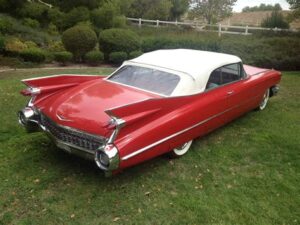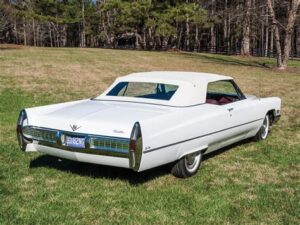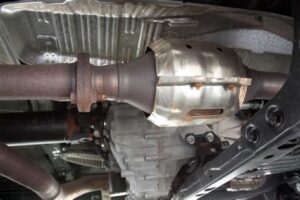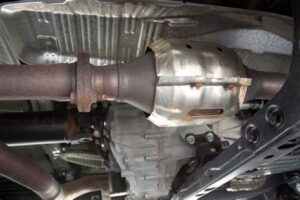Are you looking to enhance the performance and efficiency of your Nissan Altima? The Cadillac converter is a pivotal component that plays a crucial role in reducing emissions and ensuring your vehicle runs smoothly. In this article, we will delve into the importance of the Nissan Altima Cadillac converter, how to recognize early signs of failure, and the steps you can take to replace it when necessary. Moreover, we’ll explore the benefits of upgrading to a high-performance Cadillac converter and provide essential maintenance tips to keep your vehicle in top shape. Read on to discover everything you need to know about maximizing your Nissan Altima’s potential and maintaining its optimal performance on the road.
Understanding The Importance Of A Nissan Altima Cadillac Converter
The Cadillac converter is a crucial component of your nissan altima’s exhaust system. Its primary function is to reduce harmful emissions produced by the engine, ensuring that your vehicle meets environmental standards. A functioning Cadillac converter transforms toxic gases, such as carbon monoxide and nitrogen oxides, into less harmful substances before they exit the exhaust system.
When the Cadillac converter operates efficiently, it contributes significantly to fuel efficiency and overall vehicle performance. Neglecting this component can lead to poor fuel economy, increased emissions, and potential engine damage. Below, we outline some key reasons why the Cadillac converter is particularly important for your nissan altima:
| Importance | Description |
|---|---|
| Emission Control | Reduces harmful pollutants released into the atmosphere. |
| Fuel Efficiency | Enhances engine performance, leading to better fuel economy. |
| Compliance | Ensures your vehicle adheres to legal emission regulations. |
| Engine Longevity | Protects the engine from damage caused by excessive back pressure. |
The Cadillac converter is not just an accessory; it’s an essential element of your nissan altima. Ensuring it is in good condition can save you money in fuel and repairs while also contributing positively to the environment.
How To Identify A Failing Cadillac Converter In Nissan Altima
Identifying a failing nissan altima cadillac converter is crucial for maintaining your vehicle’s performance and avoiding costly repairs. Here are some common signs and symptoms to look out for:
1. Decreased Engine Performance: If you notice a significant drop in power while accelerating, it could indicate that the cadillac converter is clogged or failing. This may be accompanied by a rough idle.
2. Unusual Exhaust Smells: A failing cadillac converter may emit a strong sulfur smell, often likened to rotten eggs. This odor results from the converter not adequately processing the exhaust gases.
3. Check Engine Light: If your dashboard’s check engine light comes on, it’s essential to get a diagnostic check as it may signal issues with your cadillac converter. A mechanic can retrieve the diagnostic trouble codes to determine the exact problem.
4. Poor Fuel Economy: A failing cadillac converter can disrupt your vehicle’s fuel efficiency. If you notice that you’re filling up your gas tank more often than usual, it could be a sign of problems related to the cadillac converter.
5. Loud Noise Levels: Listen for any unusual sounds coming from your exhaust system, such as a hissing or rattling noise. These sounds can indicate that the cadillac converter is damaged and might need replacement.
If you suspect that your nissan altima‘s cadillac converter is failing, it’s advisable to consult a professional mechanic for a thorough inspection and necessary repairs to avoid further complications. Regular maintenance and prompt attention to warning signs can help extend the lifespan of your vehicle’s components.
Steps To Replace A Cadillac Converter In Your Nissan Altima
Replacing the Cadillac converter in your nissan altima is essential for maintaining optimal performance and emissions standards. Here are the detailed steps to guide you through the replacement process:
- Gather Tools and Materials: Before starting, make sure you have all the necessary tools, including a jack, jack stands, wrenches, a socket set, and a new Cadillac converter designed for your nissan altima.
- Preparation: Park your nissan altima on a level surface and ensure the engine is cool. Disconnect the negative battery terminal to prevent any electrical issues during the replacement.
- Lift the Vehicle: Use a jack to lift the front of the vehicle and place it securely on jack stands. This will provide enough clearance to access the Cadillac converter.
- Locate the Cadillac Converter: The Cadillac converter is typically found between the exhaust manifold and the muffler. Refer to your vehicle’s manual if you’re unsure about its location.
- Remove Old Cadillac Converter: Carefully unbolt the old Cadillac converter from the exhaust system. You may need to spray penetrative lubricant on the bolts if they are rusted. Use a wrench or socket set to remove the bolts.
- Inspect Gaskets and Connections: Check the exhaust gaskets for wear or damage. Replace gaskets if necessary to ensure a proper seal with the new Cadillac converter.
- Install New Cadillac Converter: Position the new Cadillac converter in place and align it with the exhaust pipe. Secure it using the bolts you previously removed, ensuring a tight fit without overtightening.
- Reconnect Components: Reattach any components you had to disconnect during the process, including any oxygen sensors. Make sure all connections are secure.
- Lower the Vehicle: Once everything is in place and secure, lower your nissan altima back to the ground and remove the jack stands.
- Reconnect Battery and Test: Reconnect the negative battery terminal. Start the engine and listen for any unusual noises. It’s also wise to check for leaks around the new Cadillac converter during this initial run.
By following these steps, you can efficiently replace the Cadillac converter in your nissan altima and ensure your vehicle runs smoothly and complies with emissions regulations.
Benefits Of Upgrading Your Nissan Altima Cadillac Converter
Upgrading your nissan altima cadillac converter can offer a range of significant benefits that enhance both performance and environmental compliance. Here are some of the key advantages:
- Improved Engine Performance: A high-performance cadillac converter can increase exhaust flow, leading to better engine efficiency and higher horsepower. This enables your nissan altima to respond faster and accelerate smoother.
- Enhanced Fuel Economy: Upgrading to a more efficient cadillac converter can lead to improved fuel efficiency. Less blockage and more effective exhaust flow mean that your engine can work more efficiently, potentially saving you money at the pump.
- Environmental Benefits: A new cadillac converter often meets or exceeds current emissions standards, ensuring that your nissan altima is less polluting. Upgrading helps reduce harmful emissions, contributing positively to environmental protection.
- Increased Durability: Many aftermarket cadillac converters are designed with higher-quality materials that withstand wear and tear better than stock components. This can lead to longer replacement intervals and less frequent repairs.
- Better Sound: Aftermarket cadillac converters can also enhance the sound of your nissan altima, giving it a sportier tone which many drivers find appealing without being overly loud.
- Improved Resale Value: An upgraded cadillac converter can be a selling point for potential buyers, as it indicates that you have invested in maintaining and improving your vehicle’s performance and compliance.
Upgrading your nissan altima cadillac converter not only improves performance and efficiency but also supports environmental responsibility, making it a worthwhile investment for any owner.
Tips For Maintaining Your Nissan Altima Cadillac Converter
Proper maintenance of your nissan altima Cadillac converter is crucial for ensuring optimal performance and longevity. Here are some essential tips to keep in mind:
By following these tips, you can help ensure that your nissan altima operates smoothly and efficiently, preserving the integrity of the Cadillac converter and enhancing your vehicle’s overall performance.
Frequently Asked Questions
What is a Cadillac converter and why is it important for the Nissan Altima?
A Cadillac converter, more accurately referred to as a catalytic converter, is an essential component of a vehicle’s exhaust system. It helps reduce harmful emissions by converting harmful gases produced during combustion into less harmful substances. For the Nissan Altima, a properly functioning catalytic converter is crucial for optimizing performance and meeting environmental regulations.
How do I know if my Nissan Altima’s catalytic converter is failing?
Signs of a failing catalytic converter may include a decrease in engine performance, unusual exhaust smells (like a rotten egg odor), and an illuminated check engine light. Additionally, if the car struggles to accelerate or there are loud noises during operation, these could indicate issues with the catalytic converter.
What are the common causes of catalytic converter failure in a Nissan Altima?
Common causes include overheating due to engine misfires, excessive oil consumption, or using low-quality fuel. Additionally, physical damage from road debris or corrosion due to environmental factors can lead to converter failure.
How often should I replace my Nissan Altima’s catalytic converter?
Catalytic converters typically last between 70,000 to 100,000 miles. However, their lifespan can vary based on driving habits, maintenance, and overall engine health. It’s essential to monitor performance and have it checked during regular service intervals.
Can I drive my Nissan Altima if the catalytic converter is damaged?
While it is possible to drive with a damaged catalytic converter, it is not recommended. Doing so can lead to further damage to the engine, decreased fuel efficiency, and increased emissions, which may violate local environmental laws.
What should I do if I need to replace my Nissan Altima’s catalytic converter?
If replacement is necessary, it is advisable to take your vehicle to a qualified mechanic or dealership. They can ensure that the new catalytic converter meets the manufacturer’s specifications and that it is installed correctly to avoid future issues.
Are aftermarket catalytic converters a good option for my Nissan Altima?
Aftermarket catalytic converters can be a cost-effective option, but it’s crucial to choose a reputable brand that complies with emissions standards. Installing subpar converters can lead to performance issues and potential legal complications, so always do thorough research before purchasing.





